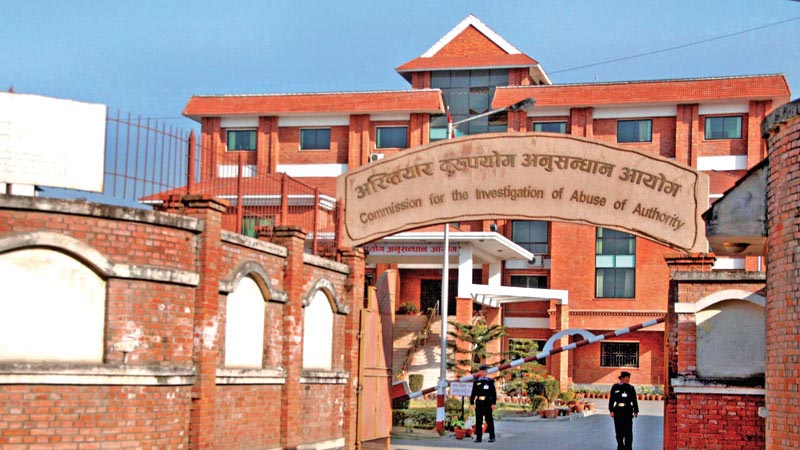Ward chair among six booked for graft
Kathmandu, February 15
The Commission for the Investigation of Abuse of Authority has filed charge-sheet against six persons, including the ward chair of Lisankhupakhar Rural Municipality-6, Sindhupalchowk, at the Special Court for their alleged involvement in corruption.
Those indicted by the anti-graft body are Kailash Thapa (ward chair), Chief Administrative Officer of the rural municipality Niranjan Pakhrin, accountant Surendra Bahadur Titaju, assistant sub-engineer Lil Bahadur Pandey and locals Babulal Joshi and Dal Bahadur Shrestha.
According to the CIAA, they had embezzled Rs 600,000 by faking the documents of Mayakhola Muhan Water Supply Project.
The charge-sheet filed against them at the court yesterday stated that Thapa posed himself as the chairperson of a water consumers’ committee at Ward 6 and disbursed the amount without carrying out any work related to water supply project.
“Thapa in collusion with others faked documents of water supply project to show various project activities and embezzled the amount,” read a press release issued by the CIAA. The budget was provided to Ward 6 to ease water supply problem facing the locals.
The bills submitted by Thapa showed purchase of pipes and other construction materials for the water supply project. “During investigation, it was found that Thapa, three officials of the rural municipality and two locals colluded to share the amount among them and faked the bills,” the release stated.
Thapa, Pakhrin, Titaju and Pandey have been charged under Section 17 of the Prevention of Corruption Act- 2002, claiming the recovery of Rs 600,000 each from them along with a fine equivalent thereto. If convicted, they will also be liable to dismissal from service. Similarly, Joshi and Shrestha, who posed as hardware suppliers, were sued in accordance with Section 8 of the act. The CIAA has sought recovery of Rs 310,000 each from the duo, in addition to a fine equivalent to the amount.
Finding of ‘Study on Corruption in Local Levels-2020’ recently published by the anti-graft body showed that corruption was endemic in local levels. Key areas of corruption included planning, administration, financial administration, revenue, civil registration, education, building permit, health, supplies management, environment and women and children.
Office-bearers of local levels, engineers/overseers and chief administrative officers were responsible for growing corruption, according to the study report.
Rudramati River clean-up campaign completes six years






